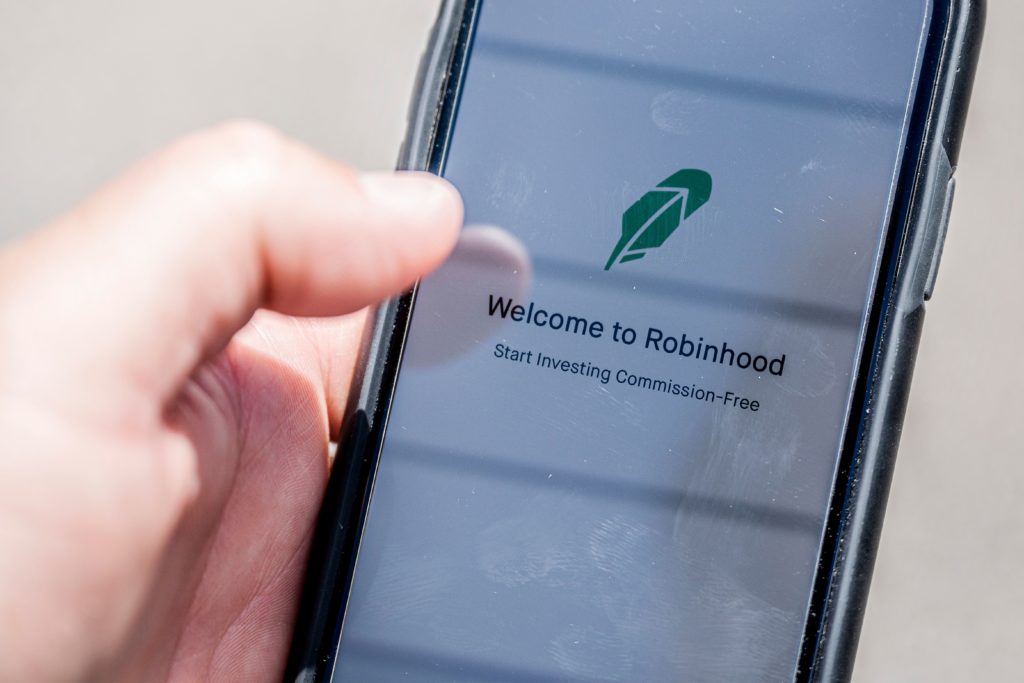NEW YORK (AP) — Robinhood Financial will pay nearly $70 million to settle a wide range of allegations, including that it gave customers misleading information and improperly allowed some users to make riskier trades after they lied about their trading experience.
The financial penalty is the largest ever ordered by the Financial Industry Regulatory Authority, a non-governmental organization that oversees the brokerage industry, and one that “reflects the scope and seriousness of Robinhood’s violations,” said Jessica Hopper, head of FINRA’s department of enforcement.
Since its 2014 launch, Robinhood has shaken up the brokerage industry with zero-commission trading and an easy-to-use app that’s drawn a new generation of investors into the market. It already has more than 31 million customers, many of whom were earlier getting left behind as the stock market rose without them. But it’s also faced criticism and penalties from a range of regulators over allegations that it encouraged novices to make trades too risky for them and hurt them in other ways.
Robinhood neither admitted nor denied the allegations in the settlement announced Wednesday. In a blog post, Robinhood detailed how it has improved support for its customers, including the ability to call in and talk with a service representative for some issues.
“We are glad to put this matter behind us and look forward to continuing to focus on our customers and democratizing finance for all.” said Jacqueline Ortiz Ramsay, Robinhood’s head of public policy communications.
Among the examples cited in FINRA’s settlement was the suicide of a 20-year-old customer last year. A note found after his death said he was confused about how he could have used borrowed money to trade when he thought he had turned off that feature. The day before he died, Robinhood showed the customer that his cash balance was negative $730,165.72, when it was actually negative $365,530.60.
FINRA said he was one of more than 800,000 customers that Robinhood allowed to make certain kinds of trades that could automatically trigger the use of borrowed money, even if they had turned off the ability to trade “on margin.” He was also an example of the more than 135,000 customers where Robinhood’s website and mobile app gave inaccurate numbers for their cash balances from December 2019 to June 2020.
FINRA also accused Robinhood of using “approval bots,” with only limited oversight, to decide whether to allow customers to trade options. Such trades can be riskier than simply buying stocks, with the potential for quicker and bigger losses. FINRA said those bots often approved customers based on “inconsistent or illogical information.” They gave the OK to some customers who were younger than 21 but also said they had more than three years of experience in trading options, for example.
Past outages at Robinhood were also cited, with FINRA accusing it of failing to reasonably supervise the technology it relied on. The most serious occurred on March 2, 2020 and continued into the following day, when Robinhood customers couldn’t get into their accounts as the pandemic caused upheaval across markets.
In its settlement, Robinhood will pay a $57 million fine and pay another $12.6 million to thousands of its customers. It’s not the company’s first settlement with FINRA. In 2019, it agreed to pay $1.25 million following accusations that it didn’t do everything it should to find the best prices for customers trading stocks. Robinhood neither admitted nor denied the allegations in that settlement.
Last year, Robinhood agreed to pay $65 million to settle accusations by the Securities and Exchange Commission that it failed to disclose the full details of its dealings with high-speed traders and didn’t get the best prices for customers trading on its app.
With its swelling ranks of oftentimes younger and more inexperienced customers, Robinhood has been a central player in the rising importance of smaller-pocketed investors on Wall Street.
Known in the industry as “retail investors” to distinguish them from pension funds and other professional investors, many are investing their savings for the first time in an attempt to slow the widening gap between themselves and wealthier households. Many also have encouraged each other on social media to pile into certain stocks en masse. That’s caused some maniacal moves for “meme stocks.”
GameStop this year has soared from $20 to $483, fallen back to roughly $40 and now trades at around $210, for example. Trading got so wild earlier this year that Robinhood and other brokerages temporarily blocked trading in GameStop and a handful of other stocks, raising the ire of many customers.
Robinhood, which says it’s trying to promote “investing for everyone,” is preparing to sell its own stock on the market in one of Wall Street’s most anticipated initial public offerings.






